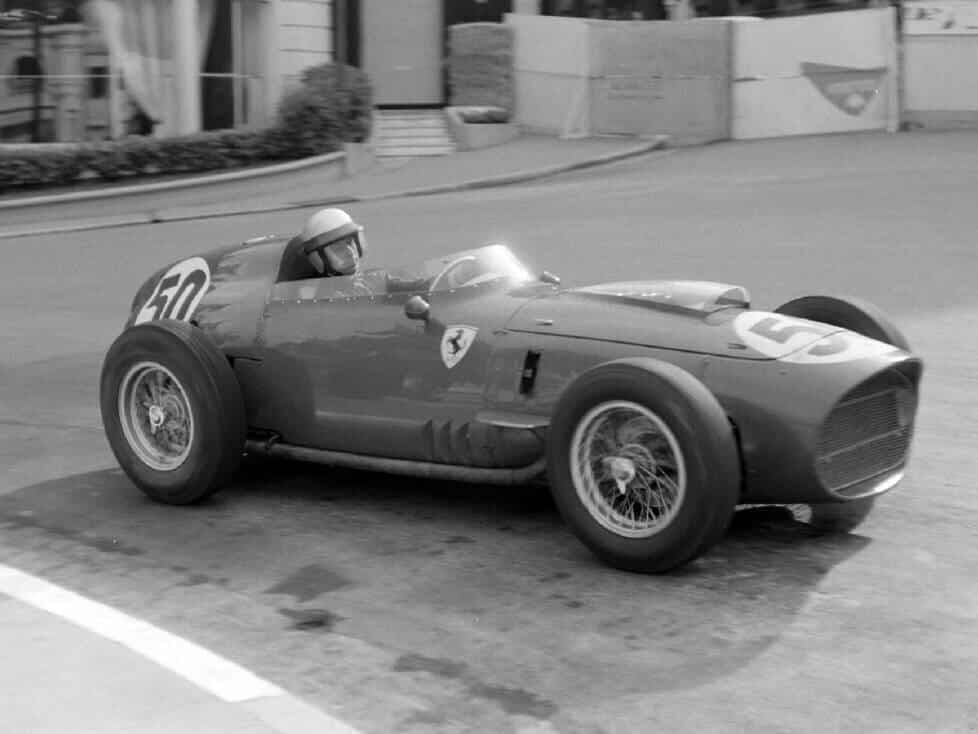With Tony Brooks, one of the greatest racing drivers of the 1950s has died – We look back at the unique career of the Briton
Formula 1 is mourning the death of Tony Brooks. The former British racing driver died on Tuesday at the age of 90. He was the last living Formula One race winner from the 1950s.
Formula 1 President and CEO Stefano Domenicali paid tribute to Brooks, saying, “He was part of a special group of drivers who were pioneers and pushed the boundaries at a time of great risk. We will miss him and our thoughts are with his family at this time.”
Having started club racing in 1952, Brooks joined the Aston Martin sports car team just two years later after some impressive testing. He became well known when he won the 1955 Syracuse Grand Prix for Connaught, which did not count towards the championship, while still studying dentistry.
It was his first drive in a contemporary Formula One car and the first Grand Prix win by a British driver in a British car for 31 years.
After a brief spell with the still-troubled BRM team, which included a fiery crash at Silverstone, Brooks moved to Vanwall and formed a British Formula One superteam with Stirling Moss and Stuart Lewis-Evans.
We are saddened to hear of the passing of Tony Brooks
F1’s last surviving race winner of the 1950s, Brooks was one of the earliest pioneers of the sport we love.
Our thoughts are with his loved ones pic.twitter.com/9hhY6MlmWZ
– Formula 1 (@F1) May 3, 2022
After a fighting second place at the 1957 Monaco Grand Prix behind the Maserati of Juan Manuel Fangio, Brooks crashed at Le Mans while driving for Aston Martin. He was lucky to survive but was still suffering when he competed in the 1957 British Grand Prix at Aintree in his Vanwall.
Triumph at the Nürburgring in 1958
He was in sixth place when Moss’ car ran into trouble. Brooks was substituted and Moss took over the wheel. He drove to one of his most famous victories, the first time a British car had won a World Championship race.
Moss was the clear number one at Vanwall (and Aston) and had priority on technical equipment, which meant Brooks could rarely improve his own car over a race weekend. But he played the team game brilliantly and often shone when Moss got into trouble.
This was evident in 1958, with Brooks winning three races – at Spa, the Nürburgring and Monza. Brooks considered his German Grand Prix victory, in which he passed the Ferraris of Mike Hawthorn and Peter Collins, who was then unfortunately killed in the chase, to be his greatest.
Moss won four times and Vanwall took the first constructors’ title in 1958. In the drivers’ championship, Moss lost to Hawthorn by one point. Things might have been different had Brooks not suffered engine failure when he was in a position to prevent Hawthorn from a much-needed second place in the final.
In 1959 Brooks moved to Ferrari and was the undisputed team leader in a squad that also included Phil Hill and Dan Gurney. Two wins put him in a title fight with Jack Brabham (works Cooper) and Moss (Rob Walker Cooper).
The cancellation of the Belgian Grand Prix and a clutch failure at the start in Italy robbed Brooks of important championship points. For both races would have suited the powerful front-engined Ferraris well. So he went into the decisive race at Sebring with only an outsider’s chance of winning the title.
Many successes away from Formula 1
A collision with teammate Wolfgang von Trips and a subsequent pit stop – Brooks didn’t want to take any unnecessary risks – meant he could only finish third at best. This meant he ended up second behind Brabham.
After that, success was hard to top. Moreover, Brooks was not a fan of the switch to rear-engined machines. He collected points with the Yeoman Credit Cooper team in 1960. He finished on the podium in his last World Championship start with BRM in the USA the following year before retiring from the sport.
Outside of Formula One, Brooks was one of the leading endurance drivers. He won both the Spa Grand Prix for sports cars and the Nürburgring 1000 kilometres in 1957 with Aston Martin DBR1, in the latter with Noel Cunningham-Reid.
In 1958 he won the Tourist Trophy at Goodwood alongside Moss before moving to Ferrari, with whom sports car success was elusive.
Brooks’ fine instincts and judgement made him particularly impressive on the really demanding circuits. And he was arguably a better racer than the first British world champion Hawthorn. His six world championship wins and 10 podium finishes came in just 38 starts.
The quiet and unassuming Brooks was one of the best drivers never to become world champion. The passing of the last Grand Prix winner of the 50s marks the end of an era.





